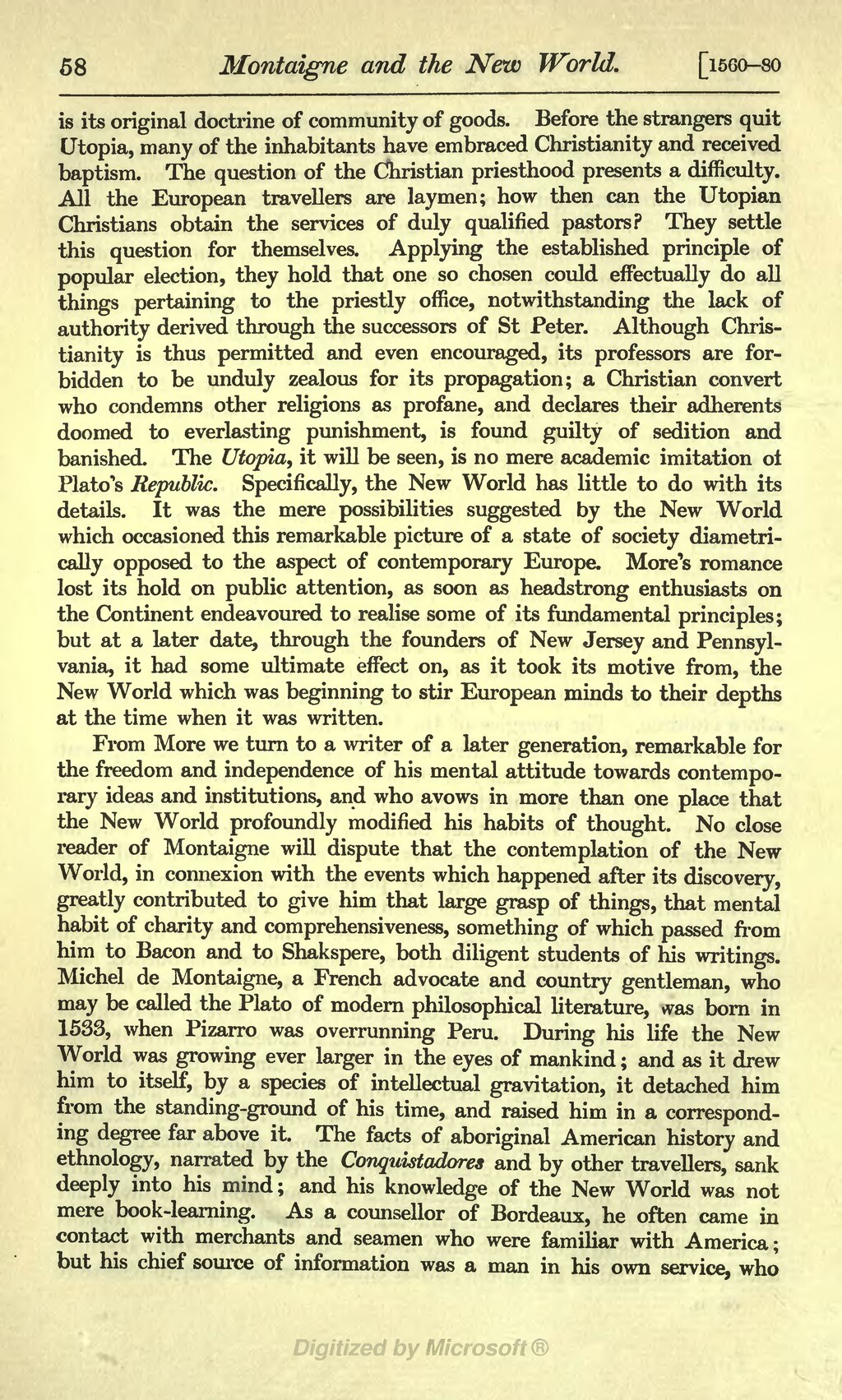is its original doctrine of community of goods. Before the strangers quit Utopia, many of the inhabitants have embraced Christianity and received baptism. The question of the Christian priesthood presents a difficulty. All the European travellers are laymen; how then can the Utopian Christians obtain the services of duly qualified pastors? They settle this question for themselves. Applying the established principle of popular election, they hold that one so chosen could effectually do all things pertaining to the priestly office, notwithstanding the lack of authority derived through the successors of St Peter. Although Christianity is thus permitted and even encouraged, its professors are forbidden to be unduly zealous for its propagation; a Christian convert who condemns other religions as profane, and declares their adherents doomed to everlasting punishment, is found guilty of sedition and banished. The Utopia, it will be seen, is no mere academic imitation of Plato's Republic. Specifically, the New World has little to do with its details. It was the mere possibilities suggested by the New World which occasioned this remarkable picture of a state of society diametrically opposed to the aspect of contemporary Europe. More's romance lost its hold on public attention, as soon as headstrong enthusiasts on the Continent endeavoured to realise some of its fundamental principles; but at a later date, through the founders of New Jersey and Pennsylvania, it had some ultimate effect on, as it took its motive from, the New World which was beginning to stir European minds to their depths at the time when it was written.
From More we turn to a writer of a later generation, remarkable for the freedom and independence of his mental attitude towards contemporary ideas and institutions, and who avows in more than one place that the New World profoundly modified his habits of thought. No close reader of Montaigne will dispute that the contemplation of the New World, in connexion with the events which happened after its discovery, greatly contributed to give him that large grasp of things, that mental habit of charity and comprehensiveness, something of which passed from him to Bacon and to Shakspere, both diligent students of his writings. Michel de Montaigne, a French advocate and country gentleman, who may be called the Plato of modern philosophical literature, was born in 1533, when Pizarro was overrunning Peru. During his life the New World was growing ever larger in the eyes of mankind; and as it drew him to itself, by a species of intellectual gravitation, it detached him from the standing-ground of his time, and raised him in a corresponding degree far above it. The facts of aboriginal American history and ethnology, narrated by the Conquistadores and by other travellers, sank deeply into his mind; and his knowledge of the New World was not mere book-learning. As a counsellor of Bordeaux, he often came in contact with merchants and seamen who were familiar with America; but his chief source of information was a man in his own service, who
